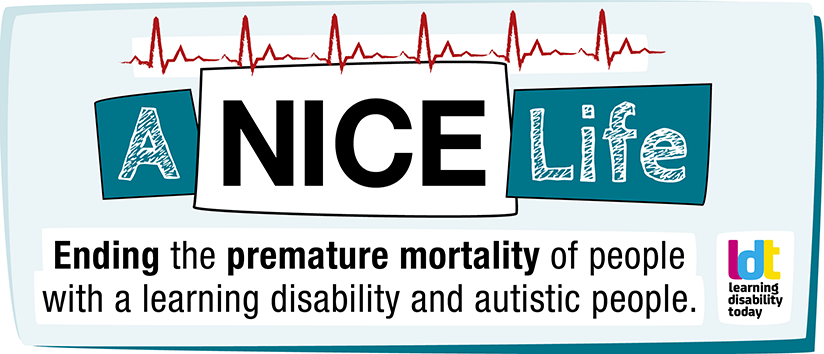Learning Disability Today
Blue Sky Offices Shoreham
25 Cecil Pashley Way
Shoreham-by-Sea
West Sussex
BN43 5FF
United Kingdom
T: 01273 434943
Contacts
Alison Bloomer
Managing Editor
[email protected]
[email protected]
Blue Sky Offices Shoreham
25 Cecil Pashley Way
Shoreham-by-Sea
West Sussex
BN43 5FF
United Kingdom
T: 01273 434943
Contacts
Alison Bloomer
Managing Editor
[email protected]
[email protected]
Recover your password.
A password will be e-mailed to you.

 In one of the biggest health scandals of our day, people with a learning disability and autistic people are likely to face premature mortality due to poor healthcare.
In one of the biggest health scandals of our day, people with a learning disability and autistic people are likely to face premature mortality due to poor healthcare.
Our recent healthcare conference examined how we can positively influence change and identified the need for a balance shift, with power being placed in the hands of those with lived and familial experiences to shape a fairer future that enables lives to flourish.
A NICE Life calls on the National Institute of Health and Care Excellence (NICE) and the Scottish Intercollegiate Guidelines Network (SIGN) to include additional information in all relevant clinical guidance to highlight and address health inequalities faced by people with a learning disability and autistic people.
The aim is to create and deliver practical guidance to healthcare professionals focused on key elements such as:
People with a learning disability and autistic people are more likely to experience complex physical health problems and have worse health compared to the general population.
They are also more likely to experience poorer quality healthcare and face premature deaths.
According to the 2022 Learning from Lives and Deaths (LeDeR) report, 42% of deaths of people with a learning disability in England were avoidable. Research from the University of Cambridge also shows autistic individuals are more likely to have chronic mental and physical health conditions, reporting lower quality healthcare than others.
Avoidable deaths are defined as causes of death that can be mainly prevented through effective public health and primary prevention interventions or through timely and effective healthcare interventions, including secondary prevention and treatment.
NICE and SIGN are independent, non-departmental public bodies that provide evidence-based clinical guidelines to help healthcare professionals deliver the best possible care.
The guidelines are developed by an appointed independent advisory committee comprising health and social care professionals, patient organisations and individuals.
Healthcare professionals trust them because they use relevant, reliable, and robust evidence. They also provide research recommendations for addressing evidence gaps and ways to reduce health inequalities.
Registered stakeholders comprising organisations interested in or representing people directly affected by the guideline topic are also allowed to influence recommendations at a consultation stage.
We want them to take this a step further!
In a recent impact report reviewing how its guidance has been used to improve the health and care of people with a learning disability, NICE identified that there has been a lack of progress made in many areas. There were also high levels of health inequality for people with a learning disability and limited positive change over time.
Over the next few months, Learning Disability Today will explore potential solutions and share stories from people already taking action to improve health outcomes.
We will also be asking people/organisations to answer three key questions:
We will share all answers in our ideas forum. Then, based on the answers, we will write an open letter to both NICE and SIGN specifying how we think it should update its guidance for healthcare professionals.
You can add your name to this open letter here.
To start the debate, we have identified three key areas where NICE and SIGN could drive real change:

Add your name to our open letter and/or share your ideas to show your ongoing commitment to helping end the premature mortality of people with a learning disability and autistic people.
Recover your password.
A password will be e-mailed to you.

